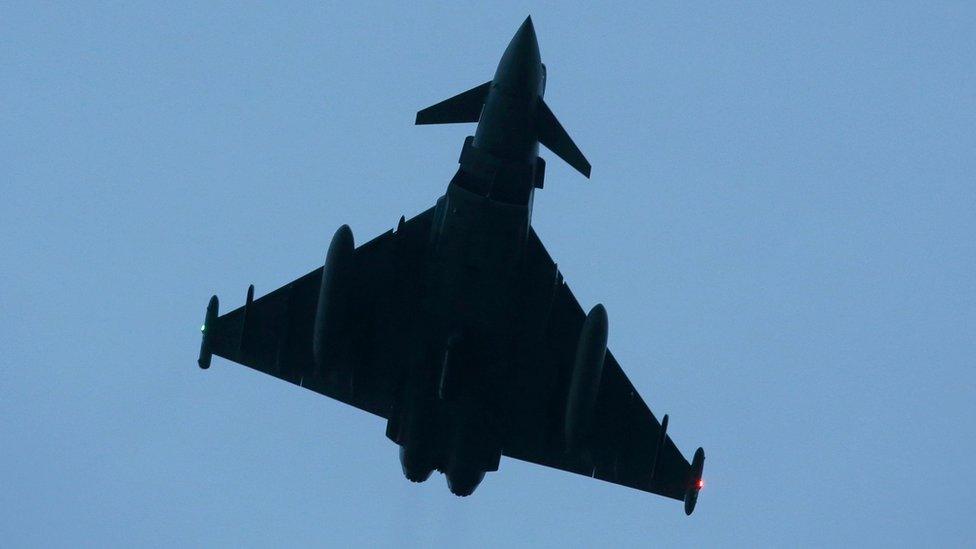Brexit: Barnier suggests vote challenged European terror unity
- Published
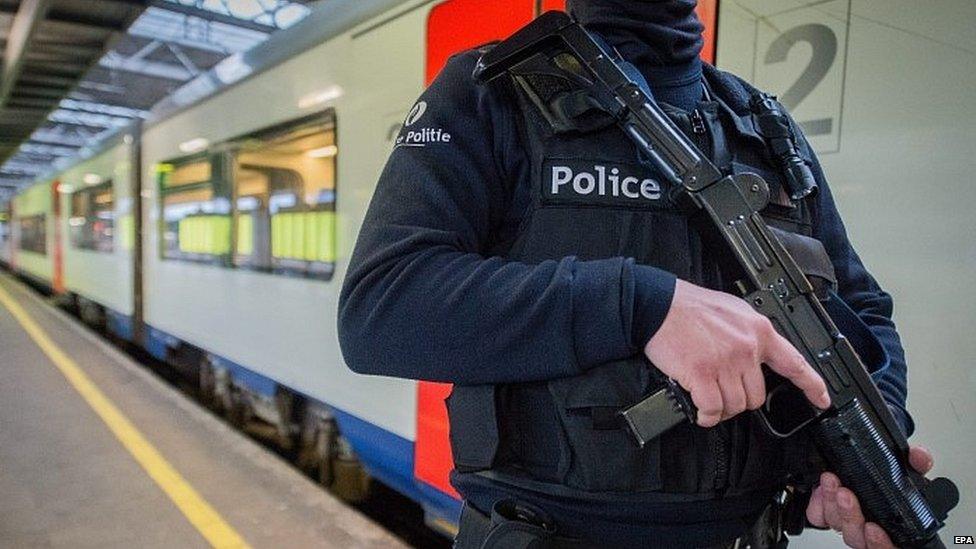
Intelligence-sharing would continue after Brexit, the EU's chief negotiator said
The UK failed to show solidarity with a Europe reeling from terror attacks when it voted for Brexit in 2016, the EU's chief negotiator has suggested.
The UK "chose to be on their own again" when the need to act together against groups such as Islamic State had never been "so strong", Michel Barnier said.
In Berlin, he said the UK must now leave bodies such as Europol but could still participate in EU-led operations.
No 10 said it intended to still play a "full part" in Europe's security.
Speaking on a visit to Iraq, Theresa May said the UK was playing a leading role in training its army to fight so-called Islamic State and also depriving the militant group of outlets for its propaganda.
There are 1,400 British military and civilian personnel in Iraq, who have helped train and equip 25,000 Iraqi and Kurdish fighters since the UK's combat role ended in 2009.
After meeting British troops near Baghdad, she insisted the UK's defence budget was rising and the UK's capabilities would be continually reviewed.
The UK, which has long-established bilateral defence relations with countries such as France, has said it wants security and intelligence co-operation to continue after Brexit and be bolstered by a new treaty.
But Mr Barnier, a former French foreign minister, said it was clear it would not be business as usual in defence and security as in other matters once the UK had left in March 2019.
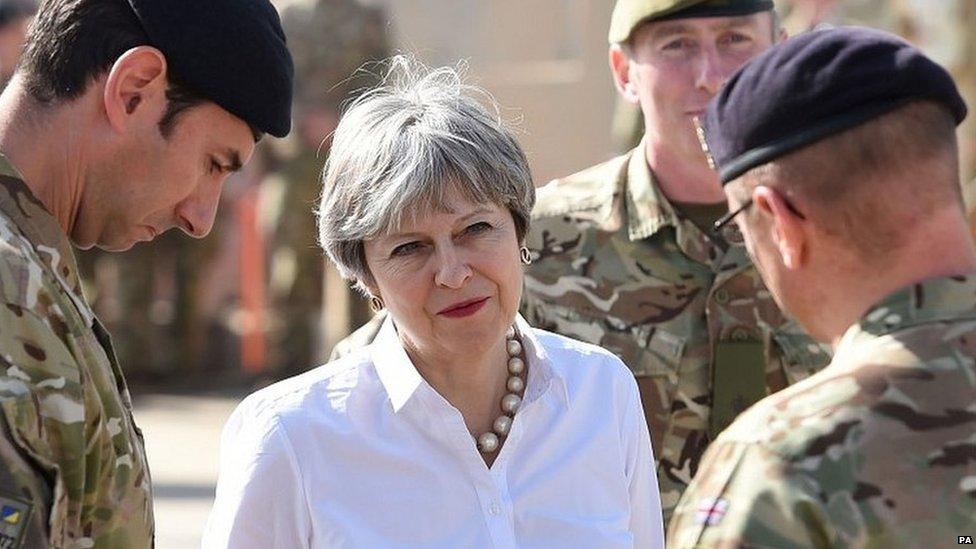
On a visit to Iraq, Theresa May witnessed the UK's contribution to the fight against Islamic State
In a speech to a German security conference, he said that while the UK would remain a diplomatic and military power by virtue of its membership of Nato and the UN Security Council, it would no longer be involved in European decision-making in defence matters and would "lose some levers for wielding influence".
Reflecting on the "great shock" caused by the Leave vote in the June 2016 referendum, he said it had come "after a series of of attacks on European soil, committed by young people who grew up in Europe, in our countries".
A series of attacks in Paris in November 2015 killed 130 people, while a bombing at Brussels airport and on the city's Metro system in April 2016 left 32 people dead.
The Leave vote, Mr Barnier said, had come "six months after the French minister of defence issued a call for solidarity to all his European counterparts to join forces to fight the terrorism of [the so-called Islamic State]".
"Never had the need to be together, to protect ourselves together, to act together been so strong, so manifest," he said.
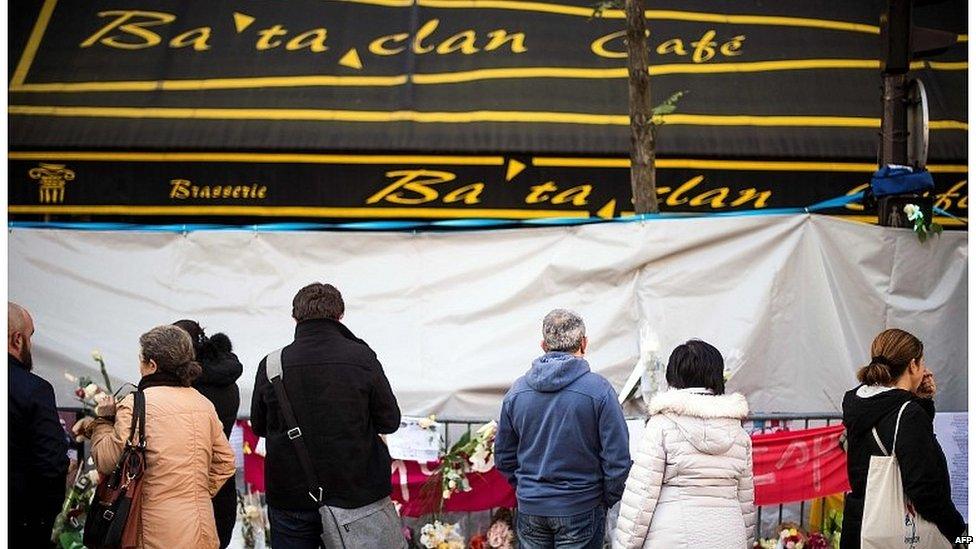
The November 2015 attacks in Paris were the worst on French soil since 1945
"Yet rather than stay shoulder to shoulder with the union, the British chose to be on their own again."
The UK, which has suffered a string of terror attacks in 2017, has been at the forefront of the fight against IS - carrying out air strikes against the militants in Iraq and Syria.
Mr Barnier's comments drew an immediate response from Brexit supporters.
Allow X content?
This article contains content provided by X. We ask for your permission before anything is loaded, as they may be using cookies and other technologies. You may want to read X’s cookie policy, external and privacy policy, external before accepting. To view this content choose ‘accept and continue’.
In his speech, Mr Barnier also made clear the EU was taking on greater responsibility for Europe's defence and although the UK still had an important contribution to make, Brexit would leave it on the outside.
The UK, he said, would no longer be able to:
lead future EU deployments
attend EU defence meetings
be a member of the European Defence Agency or Europol, the EU's law enforcement agency
This, he said, was the "logical consequence of the sovereign choice made by the British".
But insisting there must be no "horse-trading" over security in the Brexit negotiations, he said common interests and values dictated the UK and EU would continue to work together, with the UK participating in selective EU operations on a voluntarily basis.
Cooperation, he added, was also vital in areas such as:
cyber-security
intelligence
procurement
research and development
"The construction of a 'Europe of Defence' has begun," he said.
"Obviously, we will not wait for the United Kingdom to implement it, but when the time comes we will be ready to cooperate with the United Kingdom.
"This partnership will be in our best interests, since it is what the European citizens expect and it will contribute to the stability and security of our continent and our neighbourhood."
Negotiations on the UK's future relations with the EU, including on defence, have yet to begin.
But Downing Street said: "We've been clear that we want to play a full part in the security of the EU and Europe after we leave, and we think that's in the interests of both Britain and the European Union."
- Published29 November 2017
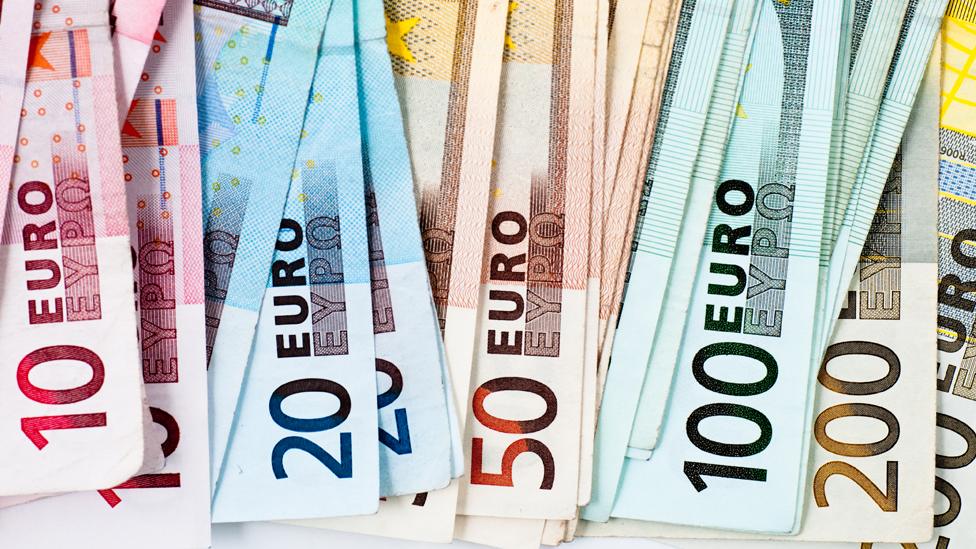
- Published12 September 2017
